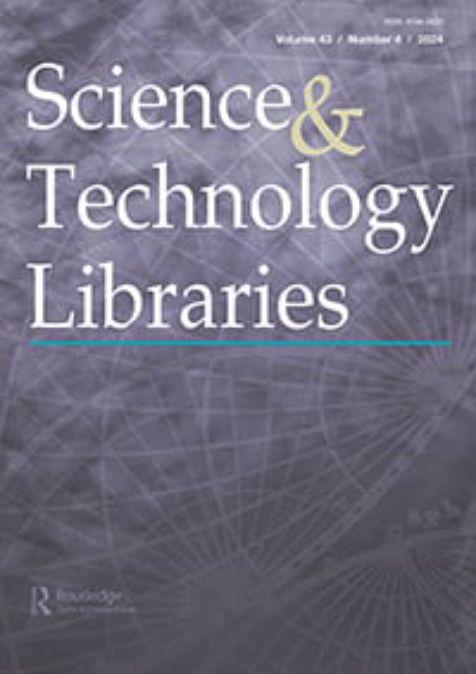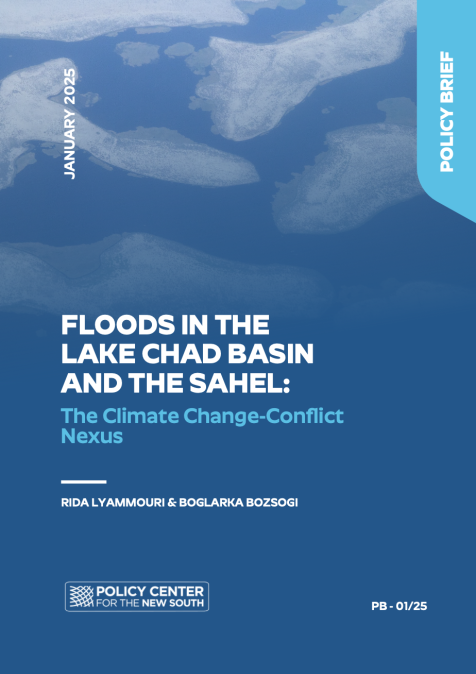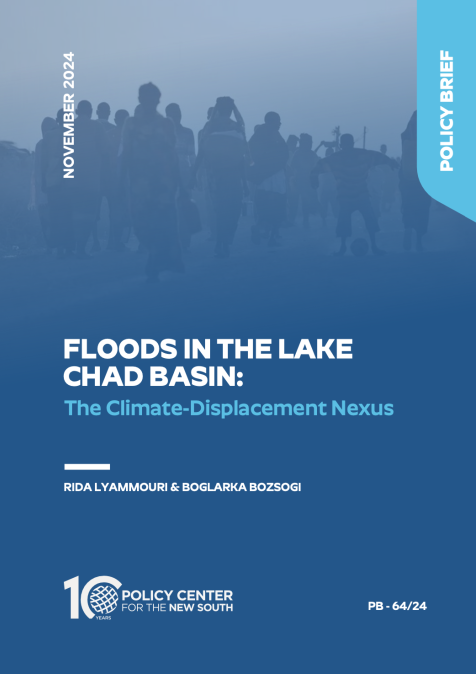في هذه الحلقة نسلط الضوء على علاقة الشباب المغربي بالموروث الثقافي، بين من يعتبره مصدر إلهام ومن يراه عبئاً يعيق التعبير الحر عن الذات. نناقش مدى قدرة الثقافة السائدة على مواكبة تطلعات الأجيال الجديدة، في ظل اتساع الفجوة بين المؤسسات التقليدية ووسائط التعبير الحديثة التي باتت تتيح فضاءات بديلة أكثر تحرراً. كما نتوقف عند الطموحات الثقافية للشباب واختلافها عن تصورات الأجيال السابقة، ونتساءل عن دور الدولة والمجتمع في بلورة سياسات ثقافية تستجيب لهذه التحولات دون التفريط في الهوية.
RELATED CONTENT
-
 AuthorsJanuary 23, 2025This paper was originaly published on tandfonline.com While Marie Curie’s unique presence among 29 male scientists at the 1927 Solvay Conference underscores the historical gender gap in science, the persistent underrepresentation of women in authorship of scientific publications – particularly in Africa and the Global South – highlights the enduring challenge of achieving gender equality in the scientific community. African women scientists represent 31.1% of the scientific ...
AuthorsJanuary 23, 2025This paper was originaly published on tandfonline.com While Marie Curie’s unique presence among 29 male scientists at the 1927 Solvay Conference underscores the historical gender gap in science, the persistent underrepresentation of women in authorship of scientific publications – particularly in Africa and the Global South – highlights the enduring challenge of achieving gender equality in the scientific community. African women scientists represent 31.1% of the scientific ... -
AuthorsBoglarka BozsogiJanuary 10, 2025The Lake Chad Basin and the Sahel regions have faced multidimensional conflict since 2011. Violence, attributed mostly to violent extremist organizations (VEOs) affiliated to al-Qaeda and the Islamic State, has put both regions on the global map of the deadliest armed conflicts and worst humanitarian crises. Since 2012, tens of thousands of people have been killed, while at least six million people have been displaced in the two regions combined. Simultaneously, floods since August ...
-
AuthorsDecember 24, 2024Over the past 50 years, international law relevant to the Sahara Issue has evolved significantly. Yet, even recent developments, such as a decision by the EU court and a proposal by the Secretary-General’s Personal Envoy to partition the Saharan provinces, have not adequately accounted for these advancements. Actions by a state that may not have been scrutinized in 1975 could now face condemnation under contemporary legal standards. Notably, the right to self-determination must not ...
-
 AuthorsDecember 20, 2024Ce papier a été initialement publié sur legrandcontinent.eu À bas bruit, plusieurs pays africains sont en train de monter dans la chaîne de valeur des véhicules électriques. Terrain de bataille de la rivalité sino-américaine sur les matières critiques, l’Afrique pourrait trouver dans la nouvelle fragmentation mondiale des chaînes d’approvisionnement une opportunité. Étude de cas depuis la République démocratique du Congo. Les perturbations successives des chaînes d’ ...
AuthorsDecember 20, 2024Ce papier a été initialement publié sur legrandcontinent.eu À bas bruit, plusieurs pays africains sont en train de monter dans la chaîne de valeur des véhicules électriques. Terrain de bataille de la rivalité sino-américaine sur les matières critiques, l’Afrique pourrait trouver dans la nouvelle fragmentation mondiale des chaînes d’approvisionnement une opportunité. Étude de cas depuis la République démocratique du Congo. Les perturbations successives des chaînes d’ ... -
 AuthorsDecember 20, 2024Este artículo se publicó originalmente en legrandcontinent.eu Varios países africanos están ascendiendo silenciosamente en la cadena de valor de los vehículos eléctricos. Campo de batalla de la rivalidad sino-estadounidense por los materiales críticos, África podría encontrar una oportunidad en la nueva fragmentación mundial de las cadenas de suministro. Estudio de caso de la República Democrática del Congo. Las sucesivas perturbaciones de las cadenas de suministro ...
AuthorsDecember 20, 2024Este artículo se publicó originalmente en legrandcontinent.eu Varios países africanos están ascendiendo silenciosamente en la cadena de valor de los vehículos eléctricos. Campo de batalla de la rivalidad sino-estadounidense por los materiales críticos, África podría encontrar una oportunidad en la nueva fragmentación mundial de las cadenas de suministro. Estudio de caso de la República Democrática del Congo. Las sucesivas perturbaciones de las cadenas de suministro ... -
December 19, 2024This episode examines the contrasting approaches to migration governance between Africa and Europe, where over 70% of African migration occurs within the continent, emphasizing regional integration and development, while European strategies prioritize externalization, border security, a...
-
AuthorsBoglarka BozsogiDecember 6, 2024Communities around the Lake Chad Basin (LCB) rely on three major economic activities: farming, fishing, and livestock herding. The floods that began in August 2024 damaged and destroyed hundreds of thousands of hectares of farmland, killed thousands of livestock, and rendered fishing unsafe for fishermen. This climate shock caused families dependent on these activities to lose their primary sources of income. Worse still, these economic activities also serve as the main source of da ...
-
 AuthorsNovember 29, 2024After the European Parliament cleared the 26 candidates proposed by Member States to form the European Commission for 2024-2029, the new European super-ministers will take up their functions on 1 December, with a revised portfolio structure. Where does Africa fit into this new organizational chart of the European Commission? Jozef Síkela, a Czech banker with a professional career in Austria, Slovenia and Ukraine, lately serving as his country’s Ministry of Industry, has been appoin ...
AuthorsNovember 29, 2024After the European Parliament cleared the 26 candidates proposed by Member States to form the European Commission for 2024-2029, the new European super-ministers will take up their functions on 1 December, with a revised portfolio structure. Where does Africa fit into this new organizational chart of the European Commission? Jozef Síkela, a Czech banker with a professional career in Austria, Slovenia and Ukraine, lately serving as his country’s Ministry of Industry, has been appoin ... -
November 21, 2024In this episode of Africafé, Dr. Marcus Vinicius de Freitas, Senior Fellow at the Policy Center for the New South, examines the evolution of transatlantic relations over the past three decades. From NATO's strategic role to the impact of Russia and China's global ambitions, the dis...
-
AuthorsBoglarka BozsogiNovember 20, 2024The Lake Chad Basin is home to over 3 million internally displaced persons (IDPs),[1] a number expected to rise due to the recent flooding affecting Chad, Niger, Nigeria, and Cameroon since August. While the primary cause of displacement remains the ongoing violent conflict in the region, the climate crisis is exacerbating existing vulnerabilities and, in the short-term, spurring new waves of displacement in areas already hosting large populations displaced by conflict and insecurit ...






